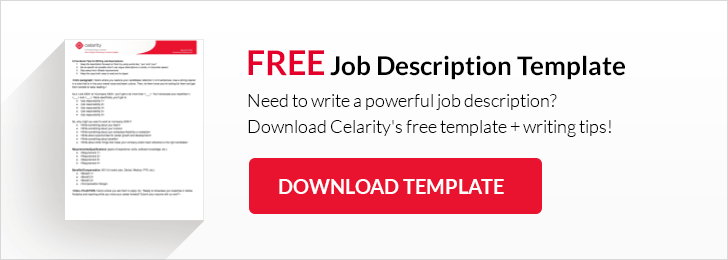You may have heard terms like SEM, SEO, and PPC used interchangeably – it seems a Search Engine Marketing Specialist can mean a lot of different things to a wide variety of people. But do these acronyms really carry the same meaning? What’s the difference between them? For someone new to this area of marketing, it can be quite perplexing.
In this Defining the Role entry, we’ll cover a few basic search engine marketing terms and provide you with some clarity by defining what SEM really is and what differentiates SEO and PPC. To help us explain search engine marketing from the viewpoint of someone working in the field, we sat down with Bryan Grainger, a jack of all SEM trades.
The Purpose of SEM
SEM is a broad term, but if you stop to consider its meaning, you might think of marketing using a search engine box, like Google or Bing. Type in a keyword or phrase and voila; results are populated on a page!
The purpose of SEM is quite simple: it allows businesses, websites, etc. to be found. Being found generally requires efforts in one or more SEM processes including organic search and paid search. We’ll cover that next.
Terms Associated with SEM
Search Engine Optimization (SEO): “…the process of getting traffic from the “free,” “organic,” “editorial” or “natural” search results on search engines. SEO requires dedicated keyword research and strategic implementation of the keywords into your website pages.
- Common SEO tools: Google Search Console (Webmaster tools), Adwords Keyword Planner, SEMrush, MOZ
- Why SEO is important: Bryan described SEO as a long-term strategy that has the ability solve problems and help people. Have you ever used Google to find a solution to your problem or question? We thought so! From a business perspective, a firm can rest easy knowing that their audience will be able to spot them when they’re needed most. This not only helps the organization sell products/services – it also sets them up for success in a competitive market.
Pay-Per-Click (PPC): “a model of internet marketing in which advertisers pay a fee each time one of their ads is clicked.” Or, “a way of purchasing visits to your site, instead of attempting to “earn” those visits organically.”
- Tools typically used in PPC: Adwords Editor, SEMrush, Wordstream, Marin Software
- Why paid search is important: Similar to SEO, PPC will help your customers find you by utilizing keywords. But, the big differences between SEO and PPC are: a) the cost of advertising b) the length of time it will take to see results. PPC can often be used as a short-term strategy that delivers almost immediate outcomes. But, if it’s used properly in conjunction with SEO, it will make you more relevant to your target audience. Or, as Bryan explains, “It makes sense to apply multiple strategies to increase conversions or revenue. It’s all about using the right tools for the job.”
The Search Engine Marketing Process
- Defining the goal(s)
- Long-term goals
- Short-term goals
- Campaign/project goals
- Perform an opportunity analysis
- Best keywords to utilize (keyword research)
- Identify keyword and usability gaps on the website
- How to best utilize existing content
- New content development
- Form a plan
- How performance will be measured
- Implementation of keywords and content
- Execution & performance
-
- Monitor
- Report
- Optimize
- Repeat as necessary, redefine, and present new opportunities
It’s important to note that the roles, responsibilities, and processes in this field can vary from organization to organization depending on the firm’s needs. There are also many more tools and terms associated with search engine marketing.
This article is meant to outline basic SEM concepts you should expect to see when you’re looking through candidate resumes. If you’re thinking about hiring a SEM Specialist, there is a lot more that you should know about candidate backgrounds. So, watch for our follow-up post, The SEM Specialist – What Kind Do You Need?, and get more information that will further define this role.
Visit The Ultimate Guide to Hiring Digital Talent page for more digital job descriptions!


